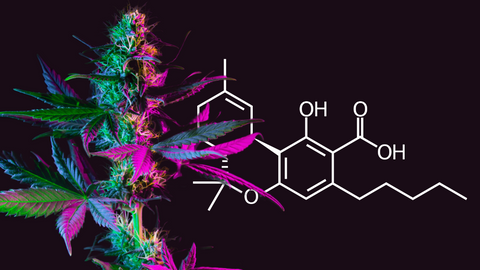Depression is a serious and prevalent mental health condition that affects millions of people worldwide. While there are a variety of treatments available for depression, many people are turning to cannabis as a potential way to manage their symptoms. Let's explore the relationship between cannabis and depression, including the scientific research, risks and side effects, and tips for finding the right balance.
[These statements are not medical advice and have not been evaluated by the FDA]
The Science Behind Cannabis and Depression
Several scientific studies have shown that cannabis may be a useful tool for managing symptoms of depression. One of the key components of cannabis, CBD, has been shown to reduce anxiety and improve sleep. Additionally, THC, another compound found in cannabis, has been shown to improve mood and reduce symptoms of depression. These effects are believed to be due to the impact that cannabis has on the endocannabinoid system, which plays a role in regulating mood, appetite, and other bodily functions.
However, it's important to note that the research on cannabis and depression is still in its early stages, and more studies are needed to fully understand the potential benefits and risks.
Risks and Side Effects of Cannabis Use
While cannabis use has potential benefits for managing symptoms of depression, it's important to understand the possible risks and side effects. One of the biggest concerns with cannabis use is the risk of addiction, particularly if the drug is used frequently or in high doses. However, research shows that cannabis is less addictive than many other substances, including alcohol and tobacco. In fact, many people are able to use cannabis responsibly without experiencing addiction.
It's important to approach cannabis use with caution and mindfulness, and to consider the potential benefits and risks before deciding to use the drug as a way to manage your depression. By being aware of the possible risks and taking steps to mitigate them, you can make informed decisions about how to use cannabis in a safe and responsible manner.
Finding the Right Balance
If you're considering using cannabis as a way to manage your depression, it's important to find the right balance. This means finding the right dosage, method of consumption, and frequency of use that works for you. It's also important to be mindful of how cannabis affects your mood and overall well-being, and to make adjustments as needed.
One way to find the right balance is to start with a low dose and gradually increase it until you find the dose that works for you. Additionally, consider experimenting with different methods of consumption, such as edibles or tinctures, to find the method that produces the most beneficial effects.
Conclusion
Depression is a serious mental health condition that affects millions of people worldwide, and cannabis is an increasingly popular option for those seeking to manage their symptoms. The potential benefits of cannabis for improving mood, reducing anxiety, and improving sleep are due to its impact on the endocannabinoid system. While the research is still in its early stages, the results so far are encouraging.
It's important to approach cannabis use with mindfulness and caution. While there may be potential risks and side effects, such as impaired cognition or short-term memory loss, many people are able to use cannabis responsibly without experiencing negative effects. By finding the right balance of dosage and method of consumption, individuals may be able to effectively manage their depression while minimizing any potential risks.
Overall, cannabis offers a promising option for those living with depression, providing an alternative or complementary approach to traditional treatments. With careful consideration and a mindful approach, cannabis can offer hope and relief for those struggling with this challenging condition.




Comments (0)
There are no comments for this article. Be the first one to leave a message!